- Home
- Claire North
The First Fifteen Lives of Harry August Page 4
The First Fifteen Lives of Harry August Read online
Page 4
His was the hand that steadied the stretcher as they pulled me out of the front door and into the waiting unmarked ambulance.
His were the hard soles on leather shoes which clacked on the marble steps of the grand hotel, empty for the season, the staff sent home, where eventually they deposited me in a bed of feathers and burgundy blankets, to dream and puke my way towards some kind of salvation.
Going cold turkey from any drug is unpleasant; from antipsychotics it is a mixed blessing. Certainly I desired death, and they strapped me down to prevent my achieving it. Certainly I knew that all was lost and I with it, that I was cursed and there was no escape, and I longed to lose my mind entirely and push out my eyes and live in madness. And certainly I do not, even now, even with my memory, recall the very worst of those times, but rather remember it all as if it happened to another man. And certainly I know I have the capacity within me to be all of that again, to feel all of that again, and know that, while the door may currently be locked, there is a black pit in the bottom of my soul that has no limit to its falling. They say that the mind cannot remember pain; I say it barely matters, for even if the physical sensation is lost, our recollection of the terror that surrounds it is perfect. I do not want to die at this present moment, though the circumstances of this present writing will dictate my course. I remember that I have wanted it, and it was real.
There was no moment of light, no waking from a darkness to find myself cured in that place. Rather there was a slow shuffling towards comprehension, a few hours of reconciliation followed by a sleep, followed by a waking which stayed awake a little longer. There was a slow restoration of human dignity: clean clothes, my hands freed at last, the scars around my wrists and ankles cleaned of crispy blood. I was permitted to feed myself, first under supervision in my bed, then under supervision by the window, then under supervision down the stairs, and at last on the patio that looked across a croquet lawn and towards a rolling green garden, where the supervision tried to pretend it was simply a friend. I was permitted to clean myself, all sharp objects removed from the bathroom and guards outside, but I barely cared and sat in the shower until my skin was a crinkled raisin and the boiler upstairs began to shudder with distress. A scraggly beard had been growing on my chin, and they brought in a barber who tutted and twitched and splattered me with Italian oils and told me in the loud voice reserved for children,
“Your face is your fortune! Don’t spend it all at once!”
Franklin Phearson had been a face on the edge of all this, by whose aloofness I could only assume he was in charge. He sat two tables away from me as I ate, was at the end of the corridor when I left the bathroom and was, I concluded, the man responsible for the two-way mirror in my bedroom, which provided constant monitoring of my room and was only revealed by the slow whirr of the surveillance camera lens as it adjusted its focus.
Then one breakfast he sat with me, no longer apart, and said,
“You’re looking much better.”
I drank my tea carefully, as I drank all things carefully in that place, little sips to test for toxins, and replied, “I feel better. Thank you.”
“It may please you to know that Dr Abel has been fired.”
He said it so easily, newspaper folded on his lap, eyes half-running over the crossword clues, that I didn’t fully grasp his meaning at the first rendition. But the words had been spoken, so I said again, as a neutral child had once spoken to my father, “Thank you.”
“I applaud his intentions,” went on Phearson, “but his methods were unsound. Would you like to see your wife?”
I counted silently to ten before I dared give an answer. “Yes. Very much.”
“She’s very distraught. She doesn’t know where you are, thinks you’ve run away. You can write to her. Put her mind at ease.”
“I’d like that.”
“There will be financial compensation for her. Maybe a trial for Dr Abel. Maybe a petition, who knows?”
“I just want to see her again,” I replied.
“Soon,” he replied. “We’ll aim to take up as little of your time as possible.”
“Who are you?”
He threw the newspaper aside at this with a sudden energy, as if he’d been pent up waiting for that question. “Franklin Phearson, sir,” he replied, thrusting out a flat pink hand. “An honour to make your acquaintance at last, Dr August.”
I looked at the hand and didn’t shake it. He retreated it with a little flap, as if it had never been intended for shaking at all but was rather an exercise in muscle relaxation. The newspaper was retrieved from the tabletop and flicked open to the domestic news, which promised strike action yet to come. I ran my spoon over the surface of my cereal and watched the milk ripple beneath it.
“So,” he said at last, “you know the future.”
I put my spoon down carefully on the side of my bowl, wiped my lips, folded my hands and sat back in my chair.
He wasn’t looking at me, eyes fixed on the newspaper.
“No,” I replied. “It was a psychotic episode.”
“Some break.”
“I was ill. I need help.”
“Yeap,” he sang out, snapping the pages of his newspaper taut with a merry flick of the wrist. “That’s bu-ll-shit.” He enjoyed the word so much it brought a quiver of a smile to the corners of his lips, and he seemed almost to consider saying it again, just to savour the experience.
“Who are you?” I asked.
“Franklin Phearson, sir. I said.”
“Who do you represent?”
“Why can’t I represent myself?”
“But you don’t.”
“I represent a number of interested agencies, organisations, nations, parties–whatever you want to call them. The good guys, basically. You want to help the good guys, don’t you?”
“And how would I help, if I could?”
“Like I said, Dr August, you know the future.”
A silence brushed between us like a cobweb in a gloomy house. He no longer pretended to read his newspaper, and I unashamedly studied his face. At length I said, “There are some obvious questions I need to ask. I suspect I know the answers, but as we are being so frank with each other…”
“Of course. This should be an honest relationship.”
“If I was to attempt to leave, would I be allowed?”
He grinned. “Well, that’s an interesting one. Permit me to answer with a question of my own: if you were to leave, where the hell do you think you could go?”
I ran my tongue round the inside of my mouth, feeling healing scars and fresh tears in the soft skin of my cheeks and lips. Then, “If I had this knowledge–which I don’t–what use would you make of it?”
“That kinda depends on what it is. If you tell me that the West will come out of this conflict triumphant, that good wins and the bad fall beneath the righteous sword, then hell, I’ll be the first guy to buy you a bottle of champagne and a slap-up feast at the brasserie of your choosing. If, on the other hand, you happen to know the dates of massacres, of wars and battles, of men murdered and crimes committed, well then, sir–I cannot tell a lie–we may have to be in conversation a little while longer.”
“You seem very ready to believe that I do know something of the future, whereas everyone–including my wife–believes it to be a delusion.”
He sighed and folded his newspaper away entirely, as if even the option of pretence were no longer of any interest to him. “Dr August,” he replied, leaning across the table towards me, hands folded beneath his chin, “let me ask you something, in this spirit of free and frank conversation. Have you in all your travels–your many, many travels–heard of the Cronus Club?”
“No,” I replied honestly. “I haven’t. What is it?”
“A myth. One of those wry footnotes academics put at the bottom of a text to liven up a particularly dull passage, a kind of ‘incidentally, some say this and isn’t that quaint’ fairy tale shoved into the small print at the back
of an unread tome.”
“And what does this small print say?”
“It says…” he replied, letting out a huff of breath with the weary resignation of the regular storyteller. “It says that there are people, living among us, who do not die. It says that they are born, and they live, and they die and they live again, the same life, a thousand times. And these people, being as they are infinitely old and infinitely wise, get together sometimes–no one really knows where–and have… Well, it depends on which text you’re reading what they have. Some say conspiratorial meetings in white robes, others go for orgies at which the next generation of their kin are created. I don’t believe in either, because the Klan has really dented the white-robe fashion down South, and orgies are everyone’s first bet.”
“And this is the Cronus Club?”
“Yes, sir,” he replied brightly. “Like the Illuminati without the glamour, or the Masons without the cufflinks, a self-perpetuating society spread across the ages for the infinite and the timeless. I had to investigate it because someone said the Russians were, and from what I can tell it’s a fantasy created by a very bored mind, but then… then someone like you comes along, Dr August, and that really throws off my paperwork.”
“You think that because my delusions correspond to an old wives’ tale there must be something to it?”
“God no, not at all! I think that because your delusions correspond to the truth, there must be something in it. And so,” a flash of a grin as he leaned back easily into his chair, “here we are.”
Time is not wisdom; wisdom is not intellect. I am still capable of being overwhelmed; he overwhelmed me.
“May I have some time to think about it?” I asked.
“Sure thing. You sleep on it, Dr August. Let me know what you think tomorrow morning. Do you play croquet?”
“No.”
“There’s a beautiful lawn if you want to try.”
Chapter 11
A moment to consider memory.
The kalachakra, the ouroborans, those of us who loop perpetually through the same course of historical events, though our lives within may change–in short, the members of the Cronus Club–forget. Some see this forgetting as a gift, a chance to rediscover things which have already been experienced, to retain some wonder at the universe. A sense of déjà vu haunts the oldest members of the Club, who know that they have seen this all before but can’t quite remember when. For others, the imperfect memory of our kin is viewed as proof that we are, for our condition, still human. Our bodies age and experience pain as humans do, and when we die future generations may come and find the place where we are buried and dig up our rotting corpses and say, yes, here indeed is the departed flesh of Harry August, though where his mind has fled to who can say? The implications for reality of this revelation are too numerous to discuss here, but always and again we return to the mind–the mind is what takes the journey through time while the flesh decays. We are no more and no less than minds, and it is human for the mind to be imperfect and to forget. So no one can remember who founded the Cronus Club, though everyone has played their part; perhaps even the ouroboran who made that first choice can no longer remember his part in it and wonders with everyone else. When we die it is as if the world resets, and only memory remains as evidence of the deeds we have done, no more and no less.
I remember everything, and sometimes with that intensity when it is not so much recollection as reliving. Even as I address you now I can recall the sun setting on the hills and the brownish smoke from Phearson’s pipe as he sat on the patio beneath my window, looking towards the untouched croquet lawn. I cannot re-create the exact pattern of my thoughts, in that they had no words, no constructed thing on which to grapple; but I can tell you the moment I reached my decision, where I sat and what I saw. I was sitting on the bed, and I saw a picture of rustic farmhouses painted in greens and greys, with a spaniel barking outside, its legs ungainly and rabbit-like as it bounded in the air.
I said, “Yes, but I have a condition.”
“What would you like?”
“I want to know everything you do about the Cronus Club.”
Phearson only thought for a moment. Then, “OK.”
So began my first–and nearly only–tampering with the course of temporal events. I began generally, broad strokes. Phearson was delighted to hear about the fall of the Soviet Union, but his delight was tempered with suspicion, in the manner of a man who couldn’t quite believe that I wasn’t inventing platitudes to appease his aspirations. He demanded details–details–and as I told him of perestroika and glasnost, the fall of the Berlin Wall, of the opening of Austria’s borders, the death of Ceauşescu, he continually handed notes to his assistants to check the names I named, to see if there really was a Gorbachev in the Kremlin and to assess if he really could be such a powerful ally in the destruction of his own nation’s glory.
His interests weren’t purely political. Science and economics were his mid-afternoon distractions, presented as light entertainment between the serious political interrogations. My interests did not aid him. I knew that the mobile phone was coming and that a mysterious force called the Internet was gathering strength but couldn’t tell him how or who had invented it as such things had never been of any great interest to me. Domestic politics held almost no interest for him, but his questions adapted to the answers I gave, growing more specific even as I strove to keep it as general as I could. After his initial doubts that the future could indeed be so rosy, he began to embrace the finer details, pressing ever closer for newspaper headlines half-seen on a tabloid board, or recollections of a journey on a train from Kyoto in 1981.
“My God, sir,” he exclaimed. “You are either the world’s greatest liar or you have one hell of a memory.”
“My memory,” I replied, “is perfect. I remember everything from when I first had the consciousness to understand that this was recollection. I cannot remember being born; perhaps the brain is simply not developed enough to understand the event. But I remember dying. I remember the moment when it stops.”
“What’s it like?” asked Phearson, eyes gleaming with a personal enthusiasm I hadn’t yet seen in his work.
“The stopping is fine. Nothing. A stop. The getting there is difficult.”
“Did you see anything?”
“No.”
“Nothing?”
“Nothing more or less than the natural function of a decaying mind.”
“Maybe it doesn’t count for you.”
“ ‘Doesn’t count’? You think that my death isn’t…” I checked myself, looked away. “I suppose I haven’t got anything to compare it with, have I?” I didn’t add that neither had he.
I told no lies but couldn’t quite satisfy him.
“But how does the invasion of Afghanistan happen? There’s no one there to fight!”
His ignorance of the past was almost as profound as his ignorance of the future but at least had the advantage of being independently corroborated. I told him to study the Great Game, to research the Pashtun, look at a map. I could give him dates and places, I explained, but the understanding–that’d have to be his own.
And in my spare time I studied. Phearson was, it seemed, as good as his word. I read about the Cronus Club.
There was very little indeed. If it hadn’t tallied so closely with my experience, I would have considered the entire thing a hoax. A reference to a society in Athens in AD 56, renowned for their learned discourse and exclusivity, the mystery surrounding their nature leading to their expulsion four years later, which, the recorder noted, they took with remarkable good grace and careless ease, unbothered by the events of the time. A diarist noting two years before the sack of Rome that a building on the corner of his street dedicated to the cult of Cronus had emptied, the very finely dressed ladies and gentlemen who went there moving on with a warning that soon things would not be worth their staying, and lo, the barbarians came. In India a man accused of murder denying the crime and
slitting his own throat in his cell, saying before he died that it was a tedious shame but that like the snake he would swallow his own tail and be born again. A group renowned for their secretive ways leaving Nanjing in 1935 and one, a lady known for her wealth–no one knew how she had acquired it–warning her favourite maid to leave the city and remove her family far afield, giving her coin to do it and prophesying a war in which everything would burn. Some called them prophets; the more superstitious named them demons. Whatever the truth, wherever they went, the Cronus Club seemed to have a twin knack for avoiding trouble and staying out of sight.
In a sense, Phearson’s file on the Cronus Club was his own undoing. For, reading it, for the very first time I began to consider the question of time.
Chapter 12
I have already mentioned some of the stages which we go through when attempting to understand what we are. In my second life I, in a rather clichéd display, killed myself to make it cease, and in my third life I sought an answer from God.
I have said that I went to some pains to find very dull, safe positions during the Second World War. What I have not stated is that the war also offered an opportunity to learn some more about the limits of my present learning. Thus, from a Jamaican engineer by the questionable name of Friday Boy, I heard about the souls of the dead and the angry ghosts that stay behind when they are not honoured. From a very earnest American officer called Walter S. Brody came the mysteries of Baptism, Anabaptism, Mormonism and Lutheranism laid out with the conclusion, “My ma was all of them at some time, and what she learned is that the best way to talk to God is by yourself.”
A Sudanese soldier who had hauled baggage for Rommel’s retreating tanks in Tunisia before escaping–or perhaps being captured, the rumour was never clarified–showed me the way to Mecca. He told me how to recite the words, “I bear witness that there is no God but Allah, and I bear witness that Mohammad is God’s servant and his messenger,” first in English, then broken Arabic, and finally Acholi, which he proudly declared was a language like no other and he, being Muslim and Acholi, was a man like no other. I recited this last several times to try and get the intonation right, and when he was satisfied he slapped me on the back and proclaimed, “There! Maybe you won’t have to burn in hellfire after all!”

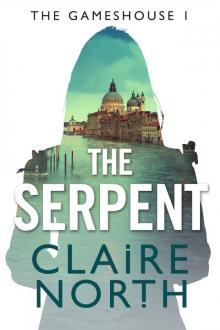 Gamehouse 01 - The Serpent
Gamehouse 01 - The Serpent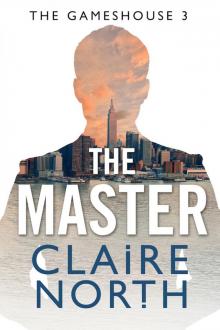 The Master
The Master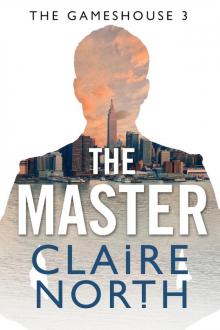 Gamehouse 03 - The Master
Gamehouse 03 - The Master The Thief
The Thief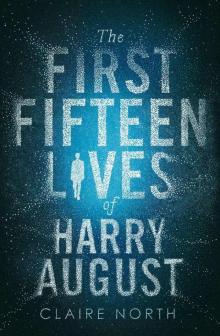 The First Fifteen Lives of Harry August
The First Fifteen Lives of Harry August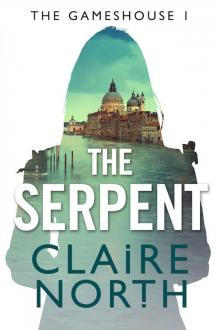 The Serpent
The Serpent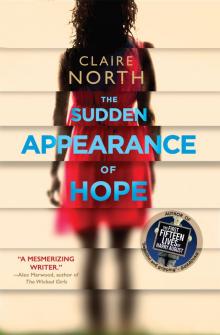 The Sudden Appearance of Hope
The Sudden Appearance of Hope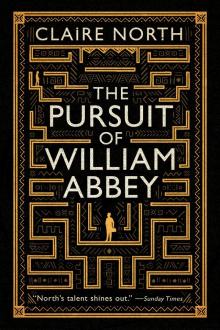 The Pursuit of William Abbey
The Pursuit of William Abbey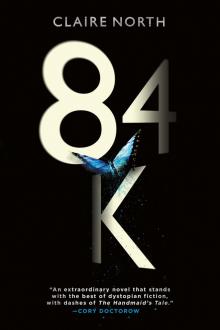 84k
84k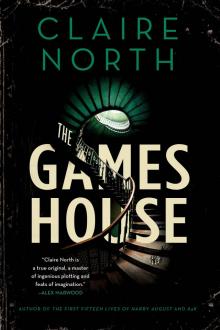 The Gameshouse
The Gameshouse Touch
Touch Sweet Harmony
Sweet Harmony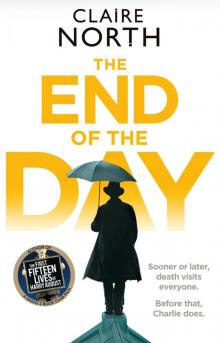 The End of the Day
The End of the Day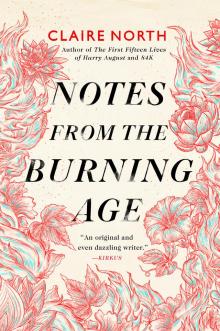 Notes from the Burning Age
Notes from the Burning Age